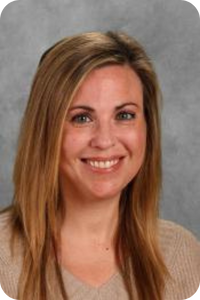Technology

It is our mission to inspire, facilitate, engage in, and advocate for a shared vision of purposeful change that utilizes the digital tools of our students' futures to achieve personalized student learning.
Resources
-
Learn more about student technology at the Your Tech page
Get help at the Spartan Help Desk.
-
Quick links
- CommonSense Media for ParentsCommonSense Media for Parents
- The Center for Humane Technology: A guide for families
- 20 Tips for Keeping Your Child Safe Online
- The Family Online Safety Institute
- SOPPA: Student Online Privacy Protection Act (See section below)
- Learn about parental controls on your kids' devices:
iOS (Apple)
Android/Google
Amazon Kindle
FAQs
Q: How safe is my student while using technology at school?
A: State and federal laws are in place to protect minors while they use technology and specifically the internet at school. Our school complies with these laws through the use of web content filtering, email monitoring, and traceable, managed user accounts. Privacy and safety of our students is of the utmost importance to us, and we are taking every measure to ensure that our students are practicing safety in their online activities. Students and parents are also encouraged to read, understand, and review the district's Acceptable Use Policy, which is signed by parent(s)/guardian(s) at the beginning of each student's enrollment, and available upon request.Q: Does my internet at home have any filters like the school's does?
A: No. Personal home or residential networks do not automatically come with these safeguards from your Internet Service Provider. It's important for parents/guardians to understand exactly what that their child(ren) can access at home. Typically, when at home, children have wide open, unrestricted access to the internet. Ask your internet service provider about this if you have questions, utilize parental controls when you can, and closely monitor your students' online activities.Digital Safety Resources for the Home
Q: I want to get a computer for my student to use for school work and for personal use. What should I look for?
A: Our district uses Google Workspace for Education, which is Google's suite of productivity and content management tools created specifically for schools. Keeping that in mind, Google makes very affordable "netbook" style laptops called Chromebooks. These are not only affordable, but are simple to operate, and they offer all of the tools our students need to use in B-PC schools. Chromebooks require no antivirus software/subscriptions, but they do require an internet connection. And best of all, they are incredibly share-able. If you have more than one child, or you want to use the device as well, each user's information and data is contained within their own user account.
PCs (Windows) or Mac (Apple) brands are also perfectly fine, but can be significantly more expensive and a little more complicated to manage. They can handle more complex jobs and third-party software. For some unique situations, these might be preferred, but for most K-12 students, Chromebooks will work great. Learn more here.Q: How much screen time should my child have every day?
A: Screen time for children is a controversial subject. The American Academy of Pediatrics suggests prohibiting all media/screen time until after a child is 2 years old. After that, parents/guardians can consider that benefits of screen time increase when children share that screen time with an adult, engaging in dialogue, and discussing what's being used/played/viewed. Each child and family is different, and ultimately the decision is a personal one. Check up above in the "Quick links" menu for resources for parents. -
-
Student Online Personal Protection Act: SOPPA
The B-PC Schools IT Team is dedicated to protecting students' privacy and keeping them safe online in accordance with the latest version of the Student Online Personal Protection Act (SOPPA).
What is SOPPA?
The Student Online Personal Protection Act, or SOPPA, is a data privacy law that regulates student data collection and use by schools, the Illinois State Board of Education, and education technology (EdTech) vendors.What does it mean for you?
As a parent or guardian, you will have greater control over your child’s personal information. In many cases, SOPPA gives parents the right to inspect, correct, or delete their child’s data, regardless of whether it is held by a school or a third-party Ed Tech vendor. Schools are also required to post on their web site the types of student data they share with Ed Tech vendors.What's next?
We are developing supports for new requirements, protocols, and regulations. Information can always be found here, on our district website, and updates that impact families will be shared accordingly.Contact Lisa Webb, Technology Director, with questions.
Other Legislation
Children’s Online Privacy Protection Act (COPPA)
The primary goal of COPPA is to place parents in control over what information is collected from their children at school. COPPA was designed to protect children under age 13 while accounting for the dynamic nature of the Internet. It applies to operators of commercial websites and online services (including mobile apps) directed to children under 13 that collect, use, or disclose personal information from children, and operators of general audience websites or online services with actual knowledge that they are collecting, using, or disclosing personal information from children under 13. COPPA also applies to websites or online services that have actual knowledge that they are collecting personal information directly from users of another website or online service directed to children.Children’s Internet Protection Act (CIPA)
CIPA was enacted by Congress in 2000 to address concerns about children’s access to obscene or harmful content over the Internet. CIPA imposes certain requirements on schools or libraries that receive discounts for Internet access or internal connections through the E-rate program.
Learn more about B-PC's current district agreements here. 
The state requires the use of certain programs for Illinois initiatives and assessments (IAR, P-EBT, CyberDrive Illinois etc.). Those programs' agreements are handled separately. Learn more here. 
Have a B-PC student who is served outside of our district?
Learn more about their program usage: WCISEC, ROE
Athletics and extracurricular organizations are not covered under SOPPA; reach out to your student's coach or sponsor to learn more about digital data privacy through those activities.
Students may not use B-PC accounts for personal use
The Parent-Student Handbook prohibits using a student's B-PC-issued Google account for activity outside of the apps/programs they are directed to use for and with their classroom teachers.B-PC Schools are not liable for such accounts or activities.
-
B-PC is proud to offer technology access and a device to every student free of charge. Students who are enrolled in our district and permitted to use a district-issued device are held to certain standards of care. These standards are outlined in the Parent-Student Handbook along with a schedule of charges for neglect and/or damage. These guidelines pertain to students and devices whether they are school or home.
Students may not use B-PC accounts for personal use:
The Parent-Student Handbook prohibits the use of a student's B-PC-issued Google account for activity outside of the apps/programs they are directed to use for and with their classroom teachers. B-PC Schools are not liable for such accounts or activities. -
The Affordable Connectivity Program is a government program that's helping families and households struggling to afford internet service during the COVID-19 pandemic. The Emergency Broadband Benefit can provide a discount of up to $50 per month towards broadband service for eligible households. Learn more here: Affordable Connectivity Program
Meet Our Team

LISA WEBB
Technology Director
Mrs. Webb has a background in teaching K-12 art and a master's degree in instructional technology. She is a Google Certified Educator, and a member of the International Society of Technology in Education and the Illinois Digital Educators Alliance.
She started at B-PC in 2016.

CHAD SHARP
Network Administrator
Mr. Sharp is a B-PC graduate and attended the Spoon River College Computer Information Systems Program. He holds CompTIA certifications for A+ and Network+.
He started at B-PC in 2012.

ASHLEY DOUGLAS
Support Technician
Ms. Douglas is a B-PC graduate who, after taking courses in Macomb through Spoon River College, resides in Bushnell with her son.
She started at B-PC in 2021.




